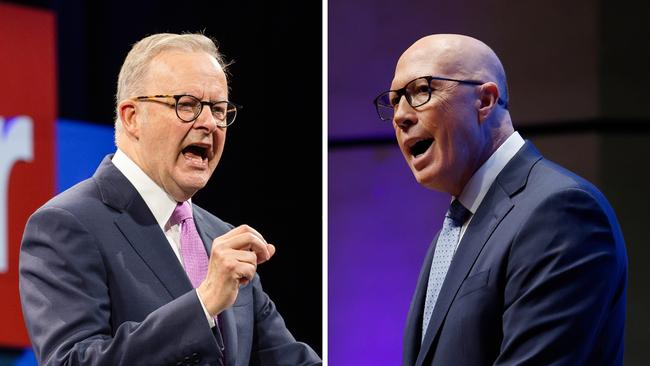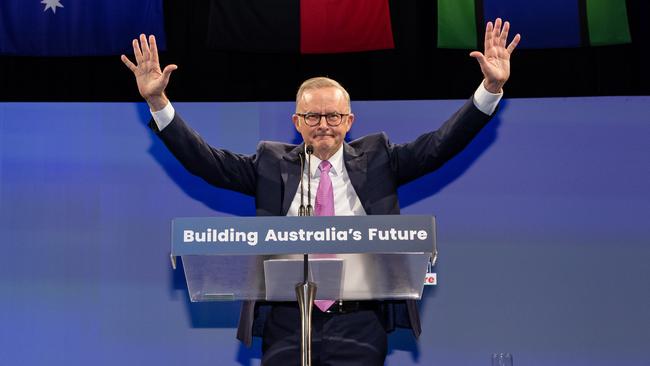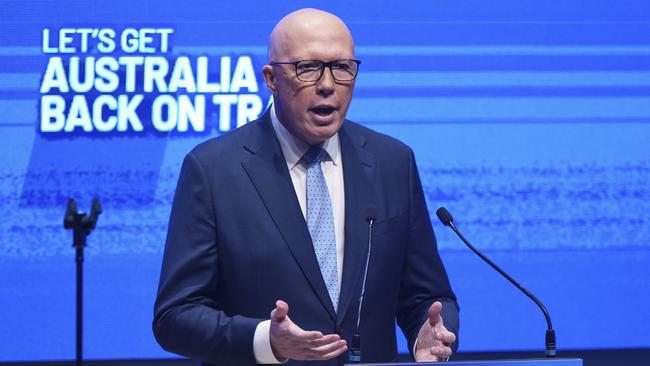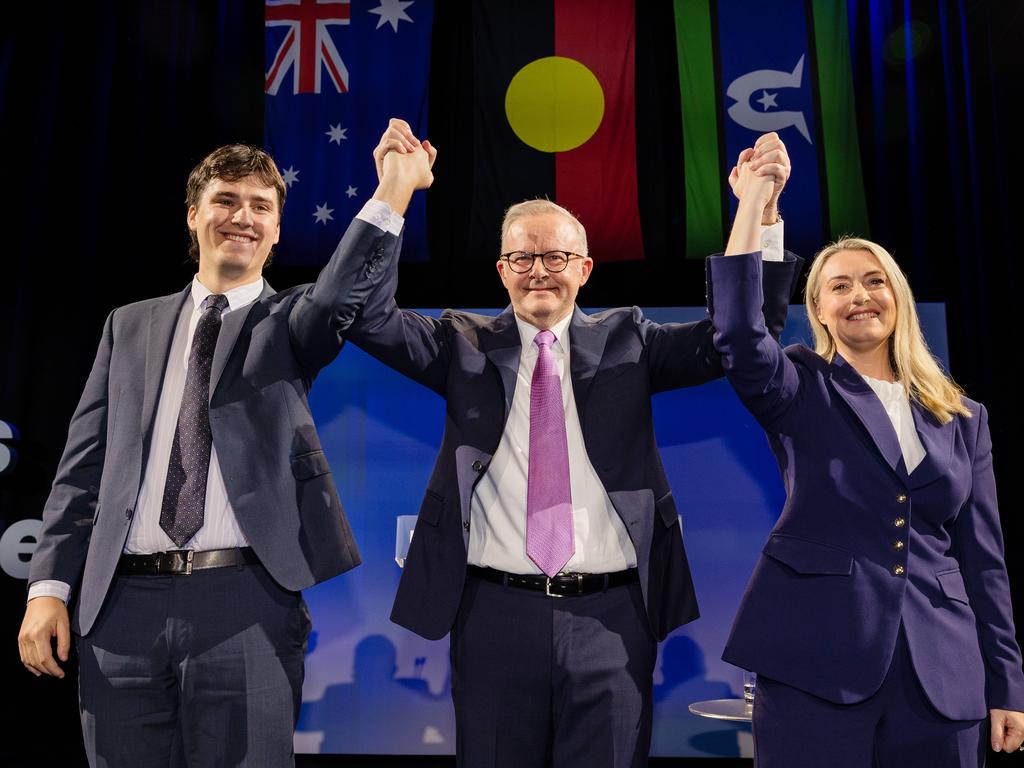
It is a deadly troika. The fusion of an election, inflation and a housing crisis has taken Australian public policy to a dismal low. The public, to a large extent, is being offered phoney and glib answers to its cost-of-living grief.
The campaign bidding war between Anthony Albanese and Peter Dutton has scaled a new peak: witness Dutton’s offering of a tax deduction for mortgage interest (a first in Australia), Albanese’s plan to deliver for first-home buyers with only a 5 per cent deposit and Dutton’s one-year tax relief offset of up to $1200, in addition to his fuel excise cut.
The leaders are sticking tight to a retail politics competition. Campaign 2025 is about spending and tax breaks to ease your pain and persuade you they care about your lost living standards.
These offerings run in tandem with a fierce negative campaign from both sides confirming the winner will be “who you distrust the least”.

In a polarised sunny Sunday that saw Albanese and Dutton on different sides of the country – Perth and Sydney respectively – to formally launch their campaigns, the tactical edge still resides with Labor.
Dutton’s launch resembled an effort to prevent the election slipping away from the Coalition.
Albanese is ebullient. He doubles down on brand Labor – invoking renewables, equality for women, the Gonski agenda, rising wages, childcare and fresh initiatives on first-home ownership. But the icon in Labor’s kitbag is Medicare – the message being Labor’s identity claim on Medicare – while Albanese is now explicitly tainting Dutton with the Trumpian slur.
Albanese talks up a second term that builds on the first. He offers more of the same and believes that’s enough. The risk is that flawed public policy – high spending, high tax, weak productivity and inadequate defence – will be authorised at the election and shape the next term.

Dutton’s agenda is being rolled out too late. He delivered an effective speech to a low-energy event in western Sydney embracing an idea long shunned in our policy – interest payment tax deductions for first-home buyers on the first $650,000 of their mortgage, to be provided for new-build homes and allowed for five years.
The tax break is available for individuals on a taxable income of up to $175,000 and $250,000 for couples. There is no cap on the overall mortgage size or home price. The Coalition said a first-home buyer earning $120,000 with a $650,000 mortgage at 6.1 per cent would receive a benefit of about $12,000 a year.
This is either an act of audacity or desperation. Designed as a circuit-break for the Coalition, it aims to boost supply but will surely boost demand before extra supply arrives. Meanwhile, Dutton’s $1200 one-year tax rebate, combined with the cut in fuel excise, aims to position the Coalition as doing more for cost-of-living relief.
Dutton’s theme was beware of “more of the same under Labor – a weaker, less secure, worse off Australia”.

His problem is the chocked-up Coalition policy rollout in the campaign – from the gas strategy to the housing tax deduction to the defence budget (still not released) that has undermined the Coalition’s pulling power for voters disillusioned with Labor.
The Coalition policy profile needed to be in headlights far earlier. Moreover, having the two leaders launch on the same day hardly helped Dutton. He needs clear air but had to share media coverage with Albanese.
Albanese’s housing initiative is sold as a “generational change” – with the median home price today at $820,000, Labor says its plan means only 5 per cent or $41,000 is needed as a deposit.
It will be available for homes valued up to the average price in every city and region.
Meanwhile, the world is being transformed in economic, trade and strategic terms. There is mutual agreement in this country – between the politicians and the public – to ensure such matters don’t interfere with our domestic priorities. The election is lost in a fog of delusion.






